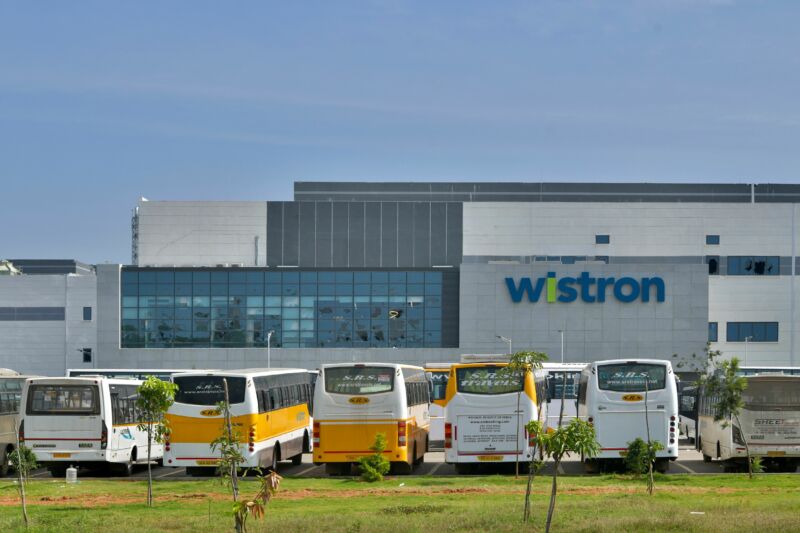
Earlier this month, employees at a Wistron iPhone factory in India, erupted into violent protests that caused up to $7 million in damages. Employees said they weren’t being paid what they were promised, and they started smashing up the place in retaliation. Apple said it would investigate. This weekend, Apple came to a preliminary conclusion. In a statement (available in full at the HindustanTimes) Apple said it found “violations of our Supplier Code of Conduct” and that it would put Wistron on “probation.”
Apple’s findings back up the worker complaints, which said Wistron wasn’t paying the salaries it promised when it hired workers. Apple’s take on the situation said, “Our preliminary findings indicate violations of our Supplier Code of Conduct by failing to implement proper working hour management processes. This led to payment delays for some workers in October and November.”
The company continues: “We have placed Wistron on probation and they will not receive any new business from Apple before they complete corrective actions. Apple employees, along with independent auditors, will monitor their progress. Our main objective is to make sure all the workers are treated with dignity and respect, and fully compensated promptly.”
After being caught exploiting workers, a Wistron spokesperson told The Wall Street Journal, “We deeply regret this and apologize to all of our workers.” The Journal reports the company has “removed” its vice president of business in India and has set up an anonymous complaint hotline.
Karnataka: #Violence at iPhone production plant run by Taiwan-based #Wistron Corp at Narasapura (in Kolar district) near #Bengaluru.
Employees allege they have not been paid properly. pic.twitter.com/GKbeFeyRKc
— TOI Bengaluru (@TOIBengaluru) December 12, 2020
India is the world’s second-biggest smartphone market after China, but China is still home to most of the phone manufacturing industry, helping power India’s $40 billion (previously $60 billion) annual trade deficit with China. The Indian government wants to use this market power to encourage foreign investment in India and has encouraged local manufacturing by enacting heavy import duties and making it harder for workers to unionize.
A report on the ground from This Week in Asia makes it sound like there is still a lot of work to be done for workers’ rights at the Wistron plant. The site reports that workers from the plant are still refusing to speak to the media for fear of repercussions and quotes the Karnataka chief minister, B.S. Yediyurappa, as saying, “Protecting the interests of foreign investors is very important for us.”
https://arstechnica.com/?p=1731165

